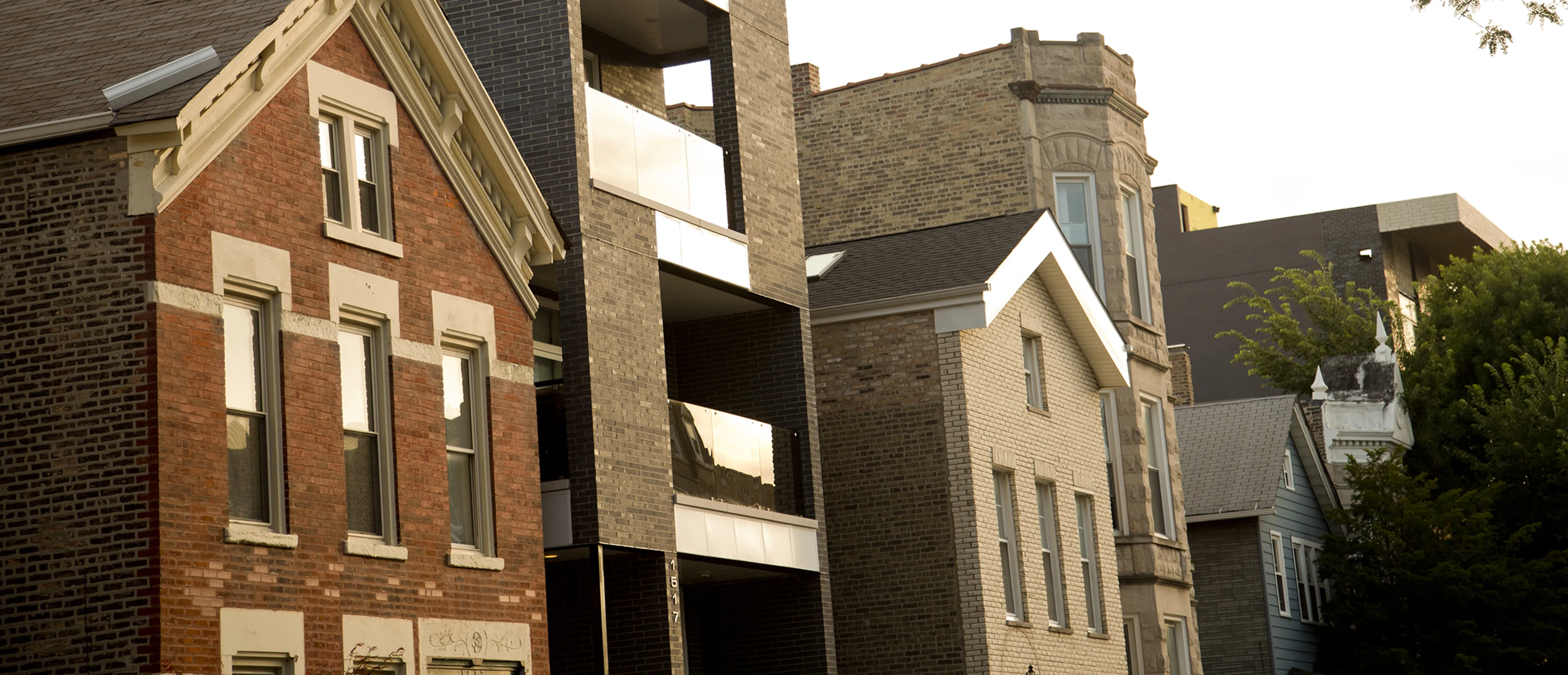Chicago's Fair Housing Laws Explained
Chicago is a patchwork of unique neighborhoods, all of which are accessible to every one of us because of fair housing laws. This post will discuss the fair housing laws for Chicago apartment landlords and offer practical advice to landlords so they remain compliant with these laws. This post covers:
- Protected classes under Chicago's Fair Housing Law
- Practical advice & tips for landlords
- How to avoid housing discrimination mistakes
- Designing an application process in accordance with fair housing laws
- Frequently asked questions about Chicago's fair housing law
These nondiscrimination laws are in place so that all renters are treated equally when we apply to rent apartments, regardless of core immutable characteristics like race, national origin, and religion, among others, and because housing integration helps close the gap on disparities in public health outcomes, education opportunities, and job opportunities, too.
What does this mean for landlords, brokers, and prospective and actual tenants? If you are choosing a new tenant for your Chicago apartment, you must not consider certain personal characteristics of the applicants when choosing between them or deciding lease terms. Some of these characteristics, called protected classes, are protected by federal law, others by Illinois or Chicago law. Because Chicago law provides the broadest anti-discrimination provisions, and because it applies to all housing in the city (it isn’t limited to the rental apartments that are regulated by the Chicago Residential Landlord Tenant Ordinance), let’s start there.
The Protected Classes Under Chicago Fair Housing Law
The Chicago Fair Housing Regulations prohibit housing discrimination on the basis of race, color, sex, gender identity, age, religion, disability, national origin, ancestry, sexual orientation, marital status, parental status, military status or source of income. See Municipal Code of Chicago, 5-8-02. This regulation applies to all owners and their agents (including property managers or brokers), and it specifies that housing may not be refused, and no terms, conditions or privileges of a lease may be determined, based on the tenant’s protected characteristic.
The federal Fair Housing Act, 42 U.S.C. 3601 et seq. applies to most housing, with the most common exception being owner-occupied buildings with no more than four units. It prohibits housing providers from making housing unavailable to persons because of their race or color, religion, sex, national origin, familial status, or disability. These protected classes are broader than they might seem: the prohibition on sex discrimination in housing extends to sexual harassment (a landlord that demands sexual favors from a tenant would be violating the FHA), and recent guidance from HUD suggests that banning all potential tenants with criminal convictions would be violative of the race discrimination provision due to disparate impact. And with the Biden administration's signing of an executive order in February of 2021, the federal Fair Housing Act will cover LGBTQ Americans. This means that the government will be able to investigate cases of housing discrimination on the basis of sexual orientation or gender identity. Up until the start of 2021, HUD was not tasked with enforcing protections for LGBTQ citizens under the Fair Housing Act.
The Illinois Human Rights Act, 775 ILCS 5/1-102, protects persons from unlawful discrimination in real estate transactions, including leasing, on the basis of race, color, religion, sex, national origin, ancestry, age, order of protection status, marital status, physical or mental disability, military status, sexual orientation, pregnancy or unfavorable discharge from military service.
In April of 2019, the Cook County Board of Commissioners voted to pass the Just Housing Ordinance (JHO), with the ordinance scheduled to take effect December 31, 2019. This update to Cook County’s code stipulates that landlords must wait to perform a criminal background check on potential tenants until after they’ve completed an initial screening process. In other words, landlords can only complete a criminal screening after they’ve given tenants a provisional ‘OK’ on the basis of their income and credit history. The criminal background questions must be the second step in the process, and tenants have the right to see, and dispute the accuracy of, any criminal record that’s serving as the basis for not leasing to them. This amendment applies to landlords of ALL dwellings in Cook County, even smaller two- to four-unit apartment buildings.
Practical Advice for Landlords
A bit of practical advice to help you comply with your legal obligations (though Domu is not your lawyer or a substitute for one): design your advertisements so that they appeal to all renters. Be careful not to dissuade certain categories of people from applying to lease your rental unit. Require all applicants to jump through the same hoops – do not impose additional burdens on certain renters because of generalizations or prejudices. In other words, you may require a credit check from every applicant, or require a guarantor on every lease, but you cannot opt to require credit checks only for applicants of certain age, or require a guarantor only if the applicant is of a religion different from yours.
With new amendments to Cook County's Just Housing Ordinance taking effect at the end of 2019, landlords also need to know that they can't ask about criminal convictions on the initial screening step. Once they've taken steps to guage a potential tenant's credit score and income source, then they may proceed to a criminal background check.
Common Housing Discrimination Mistakes and How to Avoid Them
When landlords have legitimate concerns about renting out their unit, like worries about whether a tenant will damage the property or generate noise complaints, the answer is to speak directly to those concerns in the apartment listing. As the examples below show, relying on misguided stereotypes in the listing is not only illegal, but also ineffective:
Imagine a Logan Square bungalow with intricate stained-glass windows and a lovely landscaped garden. The landlord doesn’t want to rent to a family because he fears that the kids will trample the plants and perhaps throw a ball through an irreplaceable window. But discriminating against renters with kids is illegal (except in cases of multi-family buildings designed for adults ages 55 and older, which this bungalow is not).
- Illegal Listing: Historic bungalow on quiet block featuring professionally landscaped garden and delicate stained glass. Sorry, no kids! (Discrimination against kids violates the federal Fair Housing Act, the Municipal Code of Chicago, and the Illinois Human Rights Act).
- Legal Listing: Historic bungalow on quiet block featuring professionally landscaped garden and delicate stained glass. Note: large security deposit required because of garden and architectural features.
Now consider a multi-unit building and coach house in Lakeview. In recent years, the coach house has been occupied by DePaul students, who typically have referred friends to take over their leases. But the neighbors have been complaining about noisy late-night parties and the property manager wants to avoid having to evict tenants due to noise complaints.
- Illegal Listing: Lakeview coach house with access to amazing back yard and BBQ area. No college students allowed. (Illegal due to appearance of, if not actual, age discrimination.)
- Legal Listing: Lakeview coach house with access to amazing back yard and BBQ area. Note, neighbors are sensitive to noise and landlord enforces noise rules.
Lastly, imagine a Wicker Park landlord who is listing the garden apartment of the brownstone that she occupies. She is sensitive to certain cooking smells and believes, due to her own ill-founded prejudices, that certain immigrant groups are more likely to offend. (This example is drawn from a real-life listing that Domu deactivated.)
- Illegal Listing: Wicker Park one-bedroom garden apartment available 8/1. New laundry machines and granite countertop. Native U.S. citizens only. (Discrimination on the basis of national origin violates the Chicago Fair Housing Regulation, the federal Fair Housing Act, and the Illinois Human Rights Act.)
- Legal Listing: Wicker Park one-bedroom garden apartment available 8/1. New laundry machines and granite countertop. Landlord prefers renters who don’t cook.
Designing your Rental Application to Avoid Illegal Discrimination
Let’s imagine now that you have a handful of prospective renters and you need to choose among them. Your rental application should not solicit information about an applicant that would require him or her to identify protected characteristics, such as race, sexual orientation, marital or military status, etc. Limit the questions to those which you need to make a legitimate decision between various prospective renters. Among the safe questions: rental history, history of evictions, employment history, credit score, references, the number of people with whom the applicant will live in the apartment, number and type of pets.
FAQ about Housing Discrimination in Chicago
This webpage is not intended as a complete discussion of housing laws, but as a useful introduction for landlords who intend to follow fair housing laws. As such, we offer answers to the following FAQ about Chicago housing discrimination:
1. We have a “no pets” policy for our apartment building. But a renter who relies on a service dog wants to lease a unit. May I make an exception for this person while continuing to ban dogs from the building?
Absolutely! And, in fact, the law requires you to admit the service animal despite the “no pets” policy. The Illinois Human Rights Act, 775 ILCS 5/3-104.1, prohibits a landlord from refusing to rent to a person because of his or her service animal. It also explains that a landlord may not charge an extra fee for the service animal other than a reasonable pet deposit, or otherwise change the conditions, privileges, services provided to the tenant, or facilities available to the tenant, on account of the service animal.
2. What does the Chicago Fair Housing Regulation mean when it prohibits discrimination on the basis of “source of income?”
The Code defines “source of income” as “the lawful manner by which an individual supports himself and his or her dependents.” See Municipal Code of Chicago, Section 2-160-020. In other words, if a prospective tenant pays the rent by relying on housing subsidies like Section 8 vouchers, or alimony or child support, you may not discriminate on this basis. Consider only whether the tenant’s income, whatever the legal source, is adequate to pay the rent.
3. I am a single woman and I am looking to rent out one of the bedrooms in my house. I don’t want to consider any male applicants. That’s legal, right?
Yes, it is. The Chicago Fair Housing Regulation states that it may not be applied to “[r]estrict[] the rental of rooms in a housing accommodation to persons of one sex.”




